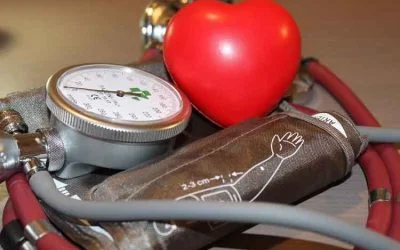Obesity is a complex disorder that has an overdose of body fat. It is not just a cosmetic problem. It increases the risk of your diseases and health complications, such as heart disease, diabetes and hypertension.
Being extremely obese means you are particularly likely to have health problems related to your weight. But the good news is that minor weight loss can improve or prevent health problems associated with obesity. Dietary changes, increased physical activity and behavioral changes can help you to lose weight. Prescribed drugs and weight loss surgery are additional options for treating obesity.
Symptoms of Obesity.
Diagnosis of Obesity is necessary when your body mass index (BMI) is 30 or higher. Your body mass index is calculated by dividing your weight into kilograms (kg) from your height in meter (m) square.
For majority of people, BMI (Body Mass Index) provides a reasonable estimate of body fat. However, BMI doesn’t directly measure body fat, so some people, such as athletes with more muscle mass, may have more BMI, even if they don’t have excess body fat.
Causes of Obesity.
Although there are genetic, practical and hormonal imbalance effects on your body weight. However, obesity occurs when you take more calories than burned through exercise and normal daily activities. Your body stored these excessive calories as fat.
Sometime obesity can cause Prader-Willy syndrome, Cushing syndrome and other diseases. However, these disorders are rare and in general the major causes of obesity are;
Physical Inactivity.
If you are not physically active, you do not burn more calories. With a sedentary lifestyle, you can easily take more calories every day than you burn through exercise and regular daily activities. Having medical problems, such as arthritis can reduce physical activities, which contributes to weight gain.
Unhealthy Diets and Eating Habits.
Weight gain is inevitable if you eat more calories regularly. And the diets of most developed countries are very high in calories and are full of fast food and high calorie drinks. A diet that is high in calories, a shortage of fruits and vegetables, full of fast food and high calorie unhealthy drinks and consuming more alcohol can also increase weight.
Risk Factors of Obesity.
Obesity usually arises from a combination of causes and contributing factors, including;
Genetics.
Your genes can affect the amount of body fat you store and where fat is distributed. Genetics can also play a role in how your body efficiently converts food into energy and how your body burns calories during exercise.
Family Lifestyle.
Obesity is related to families. If one or both of your parents are obese, your risk of being obese increases. It’s not just because of genetics. Family members follow similar diet and activity habits.
Health Problems.
In some people, obesity can be detected for therapeutic reason, such as Prader-Willy syndrome, Cushing syndrome and other conditions. Medical problems, such as arthritis, can also prevent physical activity, resulting in weight gain.
Medications.
If you do not compensate through diet or activity, some medications may gain weight. These drugs include some antidepressants, anti-sizer medications, diabetes medications, antipsychotic medications, steroids and beta blockers.
Social and Economic Issues.
Research has linked social and economic issues to obesity. If you do not have safe areas to exercise, it is difficult to prevent obesity. Likewise, you won’t have been taught healthy ways of cooking or you won’t have money to buy healthy food. In addition, the people you devote time with can affect your weight, you are likely to be obese if you have obese friends or relatives.
Age.
Obesity can occur at any age, even among the young children. But along with your age, hormonal changes and a less active lifestyle increase your risk of obesity. In addition, the amount of muscle mass decreases with age in your body. This leads to a decrease in low muscle mass metabolism.
These changes also reduce calorie needs and can make extra weight harder to keep away. If you do not consciously control your diet and become more physically active by age, you will likely gain weight.
| Read Now: How Many Days to Workout to Stay Fit |
Pregnancy.
During pregnancy, a woman’s weight are naturally increases. Some women are difficult to lose weight after childbirth. This weight gain may contribute to the growth of obesity in women.
Quit Smoking.
Quitting smoking is often associated with weight gain. And for some, it can gain enough weight that the person becomes obese. In the long run, however, quitting smoking still beneficial for your overall health.
Lack of Sleep.
Not getting enough sleep or too much sleep can cause changes in your appetite-enhancing hormones. You can increase craving food high in calories and carbohydrates, which can contribute to weight gain.
Even if you have one or more of these risk factors, that doesn’t mean you’ve become obese. You can combat most risk factors through diet, physical activity or exercise and behavioural changes.

Complications of Obesity.
If you are obese, you are likely to raise a number of potentially serious health complications, including;
- Low high density lipoprotein (LHDL) cholesterol and high triglyceride.
- Diabetes Type 2.
- High blood pressure.
- Metabolic syndrome – Which is a combination of high blood sugar, high blood pressure, high triglycerides and low HDL cholesterol.
- Heart disease.
- Stroke.
- Cancer such as uterus, cervix, endometrium, ovarian, breast, colon, rectum, liver, gall bladder, pancreas, kidney and prostate cancer.
- Breathing disorders, including sleep apnea, a potentially severe sleep disorder in which repeated breathing stops and begins.
- Gallbladder disease.
- Gynecological complications, such as infertility and irregular periods.
- Erectile dysfunction and sexual health issues.
- Non alcoholic fatty liver disease, a condition in which fat is formed in the liver and can cause inflammation or scars.
- Osteoarthritis.
Obesity and Quality of Life.
When you are obese, your overall quality of life may be low. You may not be able to do the things you used to do, such as participating in enjoyable activities. You have to avoid public places. There may be discrimination among obese people also.
Other weight-related issues that can affect your quality of life includes;
- Depression.
- Disability.
- Sexual problems.
- Shame.
- Loneliness.
- Low achievement of work.
When To Show The Doctor.
If you think you may be obese and especially if you are concerned about weight-related health problems, consult with your doctor or health care provider. Thereafter, your doctor can evaluate your health risks and provide you some effective weight loss options.
Prevention of Obesity.
Whether you are at risk of being obese, currently overweight or at a healthy weight, you can take steps to prevent your increased weight along with related health problems. Not surprisingly, the steps to lose weight and prevent weight gain are similar: daily exercise, a healthy diet and a long-term commitment to focus what you eat and drink.
Regular Exercise.
To prevent weight gain, you need to perform a moderate-intensity activity of 150 to 300 minutes a week. Moderately intense physical activity involves brisk walking and swimming.
Follow a Healthy Eating Plan.
Pay attention to low calories, nutrient-dense food, such as fruits, vegetables and whole grains. Avoid saturated fats, sweets and alcohol. Eat regular meals three times a day with limited snacking.
You can still enjoy high-fat, high calorie food in small amounts as an infectious treatment. Just be sure to choose food that promote healthy weight and good health most of the time.
Find out more about the food traps that you get food from. Identify the conditions that trigger weight gain. Try to keep a diary and write what you eat, how much you eat, how you’re feeling when you eat and how hungry you are. After a while, you should see the pattern emerge. You can plan ahead and control your eating behavior to deal with these kinds of situations.
Monitor Your Weight Regularly.
People who weigh themselves at least once a week are more successful in reducing excess weights. Monitoring your weight can tell you if your efforts are working and can help you to loose small weight before you face a big problem.
Maintain Invariability.
Stick to your healthy-weight plans during the week, over the weekend and as much as possible between holidays and it will increase your chances of long-term success.
Treatment of Obesity.
The goal of treating obesity is to reach an ideal weight and remain. It improves your overall health and reduces your risk of developing complications related to obesity. You may need to work with a team of health professionals including a dietitian, behavioral consultant or an obesity expert, to help you understand and change your diet and activity habits.
The initial treatment goal is usually a slight weight loss – 5% to 10% of your total weight. This means that if you weigh 90 kilograms and have obesity by BMI standards, you only have to lose 4.5 to 9 kilograms of weight to improve your health. However, the more weight is reduced, the more profit you gain.
All weight loss programs require a change in your eating habits and an increase in physical activity. The methods of treatment that are right for you depend on the severity of your obesity, your overall health and the desire to participate in your weight loss plan.
Dietary Changes.
Reducing calories and practicing healthy eating habits are most important for overcoming obesity. Although you can lose weight quickly at first, prolonged stable weight loss is considered to be the safest way to lose weight and the best way to keep it permanently closed.
Avoid extreme and unrealistic dietary changes such as Crash Diet, as they are improbable to help you keep away excess weight for a long time. However, plan to participate in a comprehensive weight-loss program for at least six months and put in a program maintenance for at least one year to reduce your odds of weight loss success.
There is no best weight loss diet. Choose something that includes healthy food that you think will work for you. Dietary changes to treat obesity include;
| Read Now: 16 Keto Diet Food For Rapid Weight Loss |
To Subtract Calories.
The key to weight loss is how many calories you take. The first step is to review your normal eating and drinking habits of how many calories you usually consume and where you can cut. You and your doctor can decide how many calories you need to take every day to lose weight, but a specific amount for women is 1,200 to 1,500 calories and 1,500 to 1,800 for men.
Low-stomach Filling Doses.
Some food such as desserts, candies, fats and processed food contain a large amount of calories in a small portion. In contrast, fruits and vegetables provide large portion sizes with fewer calories. By eating large portions of low-calorie food, you can reduce appetite impulses, take fewer calories and feel better about your food, which contributes to how satisfied you feel overall.
Making Healthy Choices.
To make your overall diet healthier, eat more botanical food, such as fruits, vegetables and whole grain carbohydrates. Also focus on lean sources of protein such as beans, lentils, soy and lean meats. If you non veg and like fish, then try to include fish in your diet twice a week. Limit salt and sugar in your diet. Eat small amounts of fat and make sure they are healthiest for the heart, such as olives, canola and sunflower oil.
| Read Now: Quantum Nutrition – Foods and Benefits. |
Exclude Certain Food.
Some diets limit the amount of a particular food group, such as high carbohydrate or full-fat food. Ask your doctor which diet plan has been found to be effective and which can be helpful to you. Consuming sugar-sweetened beverages is a surest way to consume more calories than you expect and limiting or eliminating these beverages altogether is a good place to cut calories.
Food Changes.
These plans suggest that you eat one or two meals in your diet such as low calorie shakes or meal bars and healthy snacks and a healthy, balanced third meal that is low in fat and calories. In the short term, this type of diet can help you to lose weight. Keep in mind that these diets will not make you likely to change your overall lifestyle. However, you have to maintain it if you want to lose weight.
| Read Now: Top 10 Super Food for Rapid Weight Loss |
Beware of Quick Fixes.
You can be tempted by a fad diet that promises fast and easy weight loss. However, the reality is that there are no magic food or quick fixes. Fad diet can help in the short term, but long-term results do not look better than other diets.
Similarly, you can lose weight on a crash diet, but you can get it again when you stop the diet. To lose weight and keep it off, you have to adopt healthy eating habits that you can maintain for prolong time.
Exercise and Activity for Obesity.
Increasing physical activity or exercise is an essential part of the treatment. Most people who are able to lose weight for more than a year exercise regularly, even by simply walking. To increase your activity level you may consider the following ways, such as;
Exercise.
People suffering from obesity need to perform moderate-intensity physical activity at least for 150 minutes a week to prevent overweight or to reduce a modest amount of weight. For more significant weight loss, you may need to exercise for 300 minutes or more a week. You will probably need to gradually increase the amount of exercise to improve your endurance and fitness level.
Keep Walking.
Even though regular aerobic exercise is the most efficient way to burn calories and reduce excess weight, any extra movement helps to burn calories. Making simple changes throughout your day can have great benefits. Park away from the store entrance, look at your household chores, garden, get up and roam from time to time and track how many steps you take in a day. A good recommended goal is to try to reach 10,000 steps every day. Gradually increase the amount of steps to reach the goal of weight loss.
| Read Now: Yoga and Its Several Health Benefits |
Behavioral Changes.
A behavioral modification program can help you to make lifestyle changes, lose weight and keep it off. Taking steps to check your current habits involves figuring out what factors, stresses or conditions may contribute to your obesity. Everyone is different and there are different obstacles to managing weight, such as lack of time to exercise or late night meals. Change your behavior to address your personal concerns.
Behavioral modification, sometimes called behavioral therapy, can includes;
Consultation.
Talking with a mental health professional can help you to address emotional and behavioral issues related to food. Therapy can help you to understand why you eat and learn healthy ways to deal with anxiety.
You can also learn how to monitor your diet and activity, understand eating triggers and cope with the craving of food. Counselling can be in single or multiple group. More intensive programs that include 12 to 26 sessions a year can be more helpful in achieving your weight loss goals.
Support Groups.
You can find comrades and understanding in support groups, where others share similar challenges with obesity. Consult with your physician, local hospitals or commercial weight loss centers for support groups in your area.
Medicine For Obesity.
Weight loss required a healthy diet and regular exercise. But in some situations, the drug can help. However, keep in mind that the weight loss drug should be used with balanced diet and exercise. The main purpose of weight loss drugs, also known as anti-obesity drugs, is to help you in a low-calorie diet by preventing the lack of appetite and help to keep you full when you trying to lose weight.
Doctor may recommend a weight loss medication if other diet and exercise programs are not working and you meet one of these criteria;
- If body mass index (BMI) 30 or above.
- Your BMI is over 27 and you also have therapeutic complications of obesity, such as diabetes, hypertension or sleep apnea.
Before choosing a medicine, your doctor will consider your health history, as well as possible side effects. Some weight loss drugs cannot be used by women during pregnancy or there are people who take certain medications or have chronic health conditions.
Anti-obesity drugs includes;
It is required a close medical monitoring while taking a prescribed weight loss medicines. Also, keep in mind that the weight loss drug may not work for everyone and the effects can be minimal. When you stop taking medicines, you can regain lost weight.
Endoscopic Procedures for Weight Loss.
These types of processes do not require any incision in your skin. By anesthesia, flexible tubes and equipment are inserted through your mouth and inserted into your stomach from your throat.
Many different types of endoscopic procedures are used for weight loss. In a process to reduce its size, you have to apply stitches to your stomach thereby reducing the amount of your food.
In another endoscopic procedure, doctors put a small balloon in your stomach. The balloon will filled with water to reduce the amount of space available in your stomach. It assist you to feel full.
All these procedures are generally ratify for people with BMI of 30 or more when diet and workout have not succeeded alone. Between 5% to 20% of the total weight loss of the body reduces the required weight.
Surgery For Obesity.
In some people, weight-loss surgery, also known as bariatric surgery, is an option. Weight-loss surgery limits the amount of food you can eat comfortably or reduce the absorption of food and calories or does both of it. While weight-loss surgery deals the best chance of losing the most weight, it can also pose serious health risks.
Weight loss surgery for obesity can be preferred if you have tried other methods to lose weight, that have not worked and you have excessive obesity i.e. BMI 40 or more.
Weight loss surgery assist some people to lose 35% or more of their excessive body weight. But weight loss surgery is not a phenomenal obesity cure.
It is not guaranteed that you will lose all your excess weight or you will keep it off for a long time. The success of weight loss after surgery depends on you like how you change your lifestyle like changes to your eating and exercise habits. Common Weight Loss Surgery Includes;
Gastric Bypass Surgery.
In gastric bypass (Roux-en-Y gastric bypass), the surgeon makes a small pouch on top of your stomach. The small intestine is then cut off at a short distance under the main abdomen and connected to the new pouch. Thereafter, food and liquid will flow directly from the pouch into this part of the intestine, bypassing most of your stomach.
Adjustable Gastric Banding.
In this process, your stomach is separated into two pouches with an inflatable band. By dragging the belt tightly, like a belt, the surgeon creates a small channel between two pouches.
Biliopancreatic Diversion With Duodenal Switch.
This procedure begins with surgery, removing a large part of the abdomen. The surgeon leaves the valve that leaves food in the small intestine and the first part of the small intestine (duodenum). Then the surgeon closes the middle part of the intestine and connects the last part directly to the duodenum.
Individual segments of the intestine are transported to the end of the intestine so that bile and digestive juices can flow into this part of the intestine.
Gastric Sleeve.
In this process, the part of the abdomen is removed, making a small storage for food. It is a less complex surgery than gastric bypass or biliopancreatic diversion, which has a duodenal switch.
Other Treatments for Obesity.
Vagal Nerve Blockage is a another treatment for obesity. Here doctors implant a device under the skin of the abdomen that sends the nerve of the stomach to intermittent electrical signals, which tells the brain when the stomach feels empty or full.
This new technology received the approval of the American Food and Drug Authority for use in 2014 by adults who have not been able to lose weight with a weight loss program and have BMI of 35-45 with at least one obesity-related condition, such as type 2 diabetes.
Frequently Asked Questions.
1. What Are The Causes Of Obesity?
Obesity is mainly the result of excessive eating and not doing physical activity. In addition, it can also be the result of genetic cause or suffering from a disease.
2. What kind of food causes obesity?
If a person consumes fast food, oil-rich food and alcohol etc., he is more likely to have obese.
3. What should an overweight person eat?
Overweight person should take special care of his diet. He should use green vegetables, fruits, juices, dry fruits, etc., as they can help in reducing weight.
4. Can obesity be reduced?
Yes, obesity can be reduced. However, some people may not trust it because they become accustomed to it. In spite of this, obesity can be reduced with the help of regular exercise, healthy food and medicines etc.
5. Can eating bananas reduce obesity?
No, eating bananas does not reduce obesity, but it works to increase weight. Thus, overweight people should make their diet plan by the advice of the doctor, so that they can get rid of obesity.
6. Do thin people survive longer?
It is not clear from any study that thin people survive for much longer. However, this applies to some extent to people who take special care of their health.
7. How much is the cost of obesity reduction surgery?
Obesity reduction surgery is known as bariatric surgery. The cost of this surgery varies from city to city, but if it comes to Delhi-NCR only, the surgery can be done at a cost of just Rs 2.5-7 lakh.
Bottom Line.
Of course, obesity is spreading rapidly around the world, which has led to its patients being seen. It is a matter of great concern, on which the government of the world is taking steps at its level.
Nevertheless, it is the duty of all people to spread awareness regarding obesity among more and more people on their behalf, so that they do not have any obesity dilemma in their minds.
Thus, we hope that it must have been useful for you to read this article and the information in it will prove beneficial to all of you.
+9 Sources
Freaktofit has strict sourcing guidelines and relies on peer-reviewed studies, educational research institutes, and medical organizations. We avoid using tertiary references. You can learn more about how we ensure our content is accurate and up-to-date by reading our editorial policy.
- Prader-Willi syndrome; https://medlineplus.gov/genetics/condition/prader-willi-syndrome/
- Cushing syndrome; https://www.mayoclinic.org/diseases-conditions/cushing-syndrome/symptoms-causes/syc-20351310
- Orlistat Capsule; https://www.webmd.com/drugs/2/drug-17220/orlistat-oral/details
- Phentermine; https://www.drugs.com/phentermine.html
- Topiramate; https://medlineplus.gov/druginfo/meds/a697012.html
- Bupropion, Oral Tablet; https://www.healthline.com/health/drugs/bupropion-oral-tablet
- Naltrexone HCL; https://www.webmd.com/drugs/2/drug-7399/naltrexone-oral/details
- Liraglutide Injection; https://medlineplus.gov/druginfo/meds/a611003.html
- Gastric bypass (Roux-en-Y); https://www.mayoclinic.org/tests-procedures/gastric-bypass-surgery/about/pac-20385189#:~:text=Gastric%20bypass%2C%20also%20called%20Roux,directly%20to%20the%20small%20intestine.

 Workout
Workout
 Meditation
Meditation


 Stories
Stories


 Podcast
Podcast E-book
E-book











